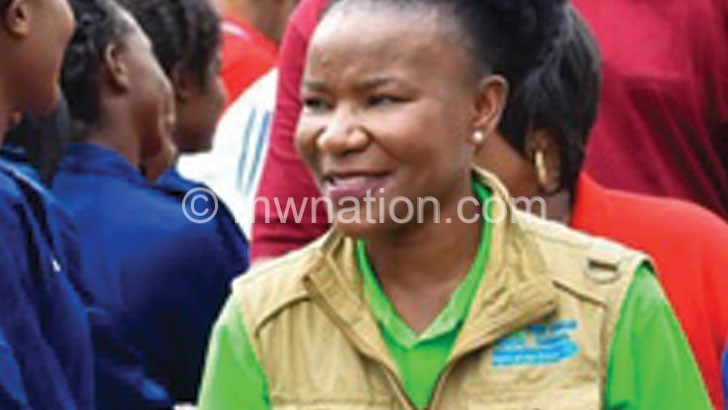UNDP Malawi censured
A draft report from UNDP head office has censured the Malawi Country Office for subjecting over 4 200 national registration staff to unfair living and working conditions, including exposing women to sexual harassment.
According to a report from United Nations Development Programme (UNDP), which Nation on Sunday has seen, the staff involved in the National Registration and Identification System (NRIS) project was not accorded the expected treatment.

But a UNDP Communication Unit based in New York Headquarters Office, responding to a Nation on Sunday inquiry, said the country office and other UNDP units are reviewing the Social and Environmental Compliance Unit (Secu) report currently in draft format to provide comments to the Secu team.
According to the draft report, the Malawi Office failed to put in place measures to ensure safety of employees.

“Of particular note is the failure of the UNDP Malawi CO [country office] to adopt measures that would help ensure the safety of female registration officers (ROs).
“Instead, actions taken; pairing women with men they did not know, assuming that any form of housing – even housing without windows, doors, or locks – was adequate, assuming gender.
“Specific measures were not needed to protect women, etc., posed significant security risks to female ROs. As a result, an undetermined number of female ROs were subjected to sexual harassment and likely assault,” reads the UNDP Secu report we have seen.
In 2017, UNDP and National Registration Bureau (NRB) hired the 4 200 to work as registration officers and supervisors during the national registration exercise in which government was targeting to register over 9 million Malawians aged 16 and above.
However, the exercise was rocked by complaints from the registration officers and supervisors about poor working conditions, including insufficient salary and daily allowances; poor and unhealthy work conditions; inadequate documentation to employees of details of their pay resulting in some 14 registration officers being arrested in Mzuzu.
Critical on the complaints list was UNDP and NRB’s failure to provide pay slips with a breakdown of the amount of money received, including deductions and amounts owed; unfair dismissals, dismissals without due process, inadequate attention to concerns and rights to organise and advocate for better wages and working conditions, which led to arrests, harms to reputations as a result of the arrests and unfair deductions for broken equipment.
It was also noted that labour-related project activities were not consistent with Malawian labour laws.
The report also added that Secu “believes that reports of harm suffered by women, including harms ranging from sexual harassment to sexual assault and other forms of physical harm, were credible.
“It is not clear how extensive these harms were, but the failure of UNDP to avoid activities that would allow such harms and to provide robust grievance mechanisms that women trusted to protect them clearly violated UNDP policies.”
The report said project activities left female employees much more vulnerable to physical and sexual violence as UNDP Malawi left women in a more vulnerable position.
The Secu report said UNDP Accountability Mechanism (AM) on October 1 2017 received a complaint from several registration officers in the UNDP Malawi NRIS Project, saying the complainants asserted that the UNDP Malawi CO did not pay adequate attention to key
labour-related concerns affecting hired ROs and supervisors.
One victim of the UNDP Malawi mismanagement told Nation on Sunday that UNDP did not fulfil their part of the contract that included not paying overtime as they were forced to work on Saturdays and Sundays even on public holidays which was not part of the agreement.
Secu investigations found that ROs and supervisors were not told, prior to training and departure for the field, to bring supplies to prepare for fieldwork saying some RO that were interviewed indicated that they slept on the floor – or on desks pulled together in classrooms – during Phase I.
Secu, in the report, also described how payments for the first phase were made, in tranches, with 40 percent of the lump sum provided when employees were sent to their field location, and the remaining 60 percent provided when the phase was completed.
“Supervisors were paid K60 000 which was 40 percent of K150 000 and K90 000 which was 60 percent of K150 000 and was subject to Paye [Pay as you earn] of K38 250 leaving a total of K112 000. Employees were paid K10 000 as a ‘transport allowance’ between phases,” reads the report.
Given Secu findings that the UNDP Malawi Office did not meet required standards, the report recommended adequate screening for social and environmental risks in future projects, with attention to potential impacts to human rights and to labour-related concerns.
“Ensure, in future UNDP projects, that employees have access to adequate working conditions, including, for example, access to clean water, food, housing,” reads the report
UNDP Communication Unit based in New York Headquarters Office said many issues raised in the report were dealt with and resolved during the mass registration.
“The salary was in line with the Malawi government practice and commensurate with recent exercises of voter registration and census and followed a strict process of validation and discussion with all the stakeholders of the project.
“UNDP does not tolerate sexual misconduct by its personnel in any form. Such behaviour is totally unacceptable. One allegation of potential misconduct highlighted in the Secu report was referred to the Investigation Section within the Office of Audit and Investigation (OAI), the principle channel for receiving allegations of wrongdoing. OAI inquired into the allegation at the time it was received and found the available information insufficient to warrant an investigation,” reads the e-mail response.
The Communication Unit further said at the time of design and implementation of the National Registration project, the standards were in the process of being rolled out in all UNDP documents and templates.
“A robust monitoring mechanism was an integral part of the project cycle management which offered real time information collected from the field and solutions aimed at completion of the overall project goals,” reads the response.
However in September 2018 during the mass registration, police arrested 14 registration staff after they organised a meeting where they raised their concerns, including seeking clarification on payments of their salary arrears and leave grants.
The 14, charged with illegal assembly and planning to commit a felony after the then Home Affairs minister Grace Chiumia had reported that the group was plotting to destroy registration information in the computers.
Ministry of labour, Youth, Sports and Manpower Development spokesperson Christina Mkutumula in an e-mail response said they could not respond to the matter because it was not reported to the ministry.
“Had the same been the case, the ministry would have applied the relevant procedures to ensure that the case was followed and resolved accordingly,” she said.
NRIS was jointly developed and implemented by the Ministry of Homeland Security, the National Registration Bureau and UNDP and had a budget of K36.3 billion ($49.7 million).





